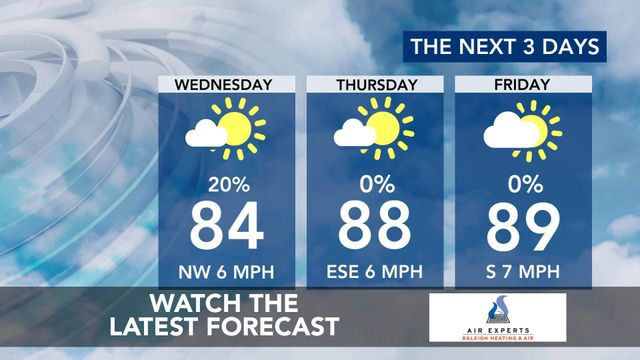North Carolina ranks 29th in public pre-K enrollment, new report shows
More North Carolina children are attending public pre-kindergarten programs, but attendance remains lower than most other states, according to a new report from a group that tracks early education across the U.S.
North Carolina, the country’s ninth most populous state, ranks 29th in the nation for preschool enrollment for 4-year-olds, according to a report released Thursday by the National Institute for Early Education Research. The institute, part of the Rutgers Graduate School of Education in New Jersey, researches early childhood education and advocates for policies that better serve children.
The report focuses on each state’s enrollment numbers, spending efforts, and whether each state’s programs met the institute’s measurements for quality. The institute reviewed data for the 2022-23 school year and found mixed results for North Carolina.
North Carolina enrolled more than 25,600 4-year-olds in public pre-K programs — about 21% of the state’s 4-year-old population. Enrollment was up about 8.5% from the prior school year. That’s namely from NC Pre-K, the state’s public pre-kindergarten program for students whose families meet certain income requirements; the program doesn’t have enough seats to enroll all of those who qualify. The report didn’t cover private pre-kindergarten or early education programs.
Despite the increase, preschool enrollment in North Carolina is still well below pre-pandemic highs, according to Steven W. Barnett, the institute’s senior co-director and founder. Pre-K enrollment reached 22% of all 4-year-olds for several school year between 2017 and 2020.
“We hope North Carolina will make the right choices to expand preschool access and increase funding to ensure more children have access to quality early learning opportunities that will help them develop,” Barnett said in a statement.
On quality, North Carolina was one of only 13 states that met at least nine of the institute’s ten benchmarks.
North Carolina fell short only of the institute’s standard for professional development for pre-K staff. The state requires five to 20 hours of professional development training each year, while the institute recommends states require 15 hours a year.
North Carolina met the institute’s standards for class size and staff-to-child ratios, despite expanding both. The state government passed a law increasing the maximum class size from 18 students to 20, allowing the teacher-to-student ratio to jump from 9-to-1 to 10-to-1. If North Carolina increases class size again without requiring another staff member, it will fail to meet the institute’s requirements.
In terms of funding, North Carolina is slightly above average — despite decreasing spending on a per child basis, researchers found.
The institute reports that North Carolina spent $6,672 per pre-K student in 2022-23, down 17.7% from the previous year when adjusted for inflation. That ranks 19th nationally.
Advocacy groups have called on the state to expand NC Pre-K and Smart Start to more families and to increase the reimbursement rate for counties operating the programs, which cost more than the reimbursement rate.
An agreement in the long-running education lawsuit Hoke County Board of Education v. State of North Carolina — commonly known as “Leandro” for an original plaintiff — calls for such expansion. But that agreement hasn’t been implemented because of ongoing legal challenges.
The institute’s announcement notes that although total spending for preschool programs is at an all-time high, most states need to increase funding to meet its standards for providing high-quality pre-K programs.
In an interview with reporters, Barnett said pre-K programs are popular on both sides of the aisle. The states that received the highest scores for pre-K quality — Alabama, Hawaii, Michigan, Mississippi, and Rhode Island — are controlled by different parties.
“Regardless of your political persuasion, I think states have an interest in investing in their own people for the future and they understand that early childhood is perhaps the most productive place to make those investments,” Barnett said.









